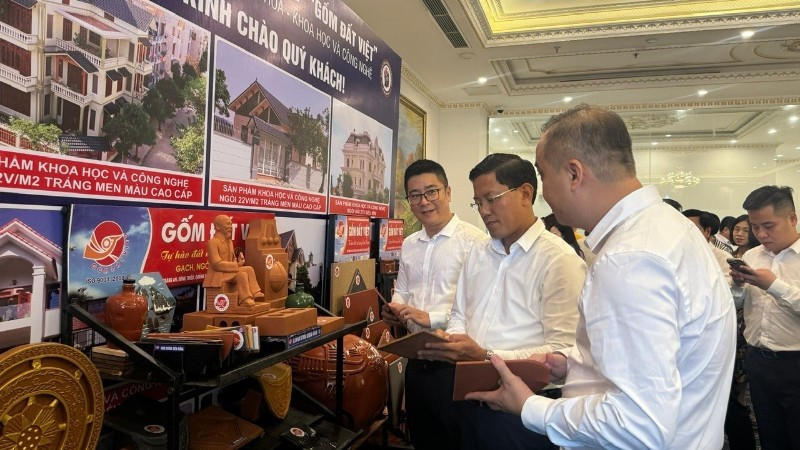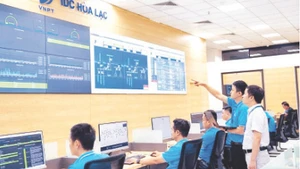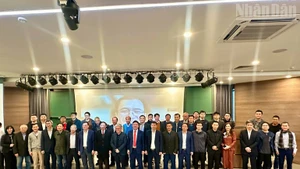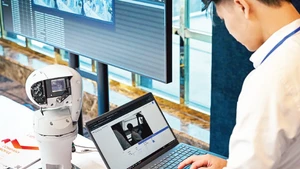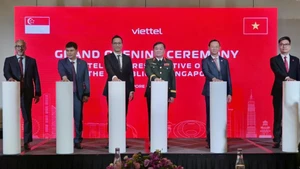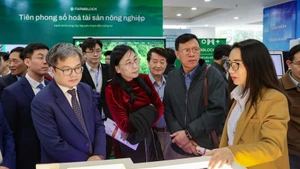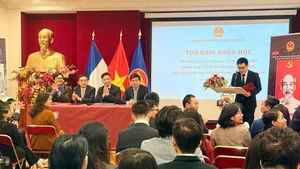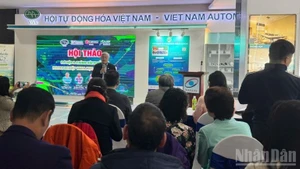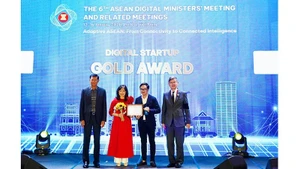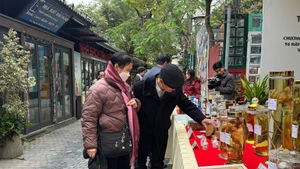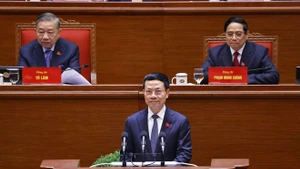Over the years, the quality of the projects submitted to the competition has been increasingly evaluated, due to their novelty, creativity, and benefits to the community and society. However, the application of the winning projects to production and life is still facing many shortcomings.
Among the thousands of projects that have won the VIFOTEC award, many have been effectively applied in life, typically solutions in agriculture, health, industry, and environmental protection. The project on completing the technological process for producing the first generation Japanese encephalitis vaccine chaired by Professor, Doctor, People’s Physician, Hero of Labour Huynh Thi Phuong Lien won the First Prize in 1995.
By 1997, the first generation Japanese encephalitis vaccine was included in the expanded immunization programme for children from 1 to 5 years old by the Ministry of Health and in 2014, nearly 100% of children nationwide were vaccinated, contributing significantly to reducing Japanese encephalitis in children to 10 to 15%.
From 2001 to 2007, Japanese encephalitis vaccine was exported to many countries around the world, contributing significantly to disease prevention for the community.
Similarly, Dat Viet Ceramic Joint Stock Company Group is a private enterprise consisting of 3 companies: Dat Viet Ceramic Joint Stock Company, Dat Viet Brick and Tile Joint Stock Company, and Dat Viet Ceramic Import-Export Trading Joint Stock Company.
Currently, the Dat Viet Ceramic Joint Stock Company has manufactured and produced more than 200 types of terracotta products. In particular, the company's first super-fine dry grinding technology in the world has made use of waste soil, solid waste soil (hard soil, shale soil); finished waste products, not only saving natural resources but also improving the production environment.
With outstanding research projects, the company has repeatedly received the First Prize from the VIFOTEC Fund and the World Intellectual Property Organization (WIPO) for the best project that effectively applies the intellectual property system.
According to Dr. Phan Xuan Dung, Chairman of the Viet Nam Union of Science and Technology Associations (VUSTA), over the past 33 years of establishment, the VIFOTEC Fund has successfully organised 29 awards, 17 competitions, and 20 competitions, contributing to creating a movement of emulation in scientific and technological research and creative labor of intellectuals and workers nationwide.
From 2005 to 2025, there were 10,080 topics participating in the National Innovation Contest for Youth and Children and 1,743 topics won prizes. The award focuses on key economic sectors of the State, so the products created are quickly applied to life, promoting increased labour productivity, reducing product costs, and increasing competitiveness with countries in the region.
In fact, organising awards and competitions not only meets the needs of scientific development, but also motivates and encourages the team of scientists and technologists and the creative working masses to delve into research and improve technology in the cause of industrialisation and modernisation of the country.
However, according to analysis by experts, there is a long-standing reality in the field of scientific research in the country, which is the situation that after receiving awards or many scientific topics are evaluated as excellent after acceptance, they still fall into the state of “putting in a drawer”, not applied in practice.
One of the reasons is that research units, award-winning authors, businesses, and manufacturers do not have close links to transfer technology and award-winning products into practice. Besides, application projects often require large capital to scale up production and testing, but authors or businesses often have difficulty accessing support capital from the State or financial institutions.
According to Le Xuan Thao, Permanent Vice Chairman of the VIFOTEC Fund Sponsoring Council, one of the tasks and solutions set out by the Politburo in Resolution No.57-NQ/TW on breakthroughs in science, technology, innovation and national digital transformation is: “Expanding and diversifying forms of timely and worthy honour, commendation and rewards for scientists, inventors, businesses, organisations and individuals with achievements in science, technology, innovation and digital transformation development; respecting every invention, invention, technical improvement and initiative to improve work efficiency and performance, no matter how small”.
Therefore, in order to better organise awards and competitions, and quickly apply award-winning projects to production and life, it is necessary to promote communications, dissemination and guidance on professional participation in awards and competitions to the grassroots level, and at the same time make recommendations to the State on policies and mechanisms such as: Providing loans to expand production and consumption of products of award-winning projects; having policies to encourage the use of domestically created products to replace imported products; having policies to deduct rewards from profits from projects and solutions to reward authors and organisations applying scientific and technological products; providing loans to widely apply successful research projects.
In addition, it is necessary to propose very specific solutions to quickly apply scientific and technological projects in general, especially award-winning projects and solutions, to life and production; thereby, creating high quality products with great competitiveness in the domestic and international markets. That is the right and positive direction to best promote internal factors to bring the country to develop quickly and sustainably.
